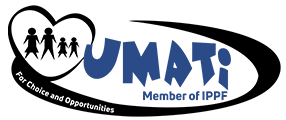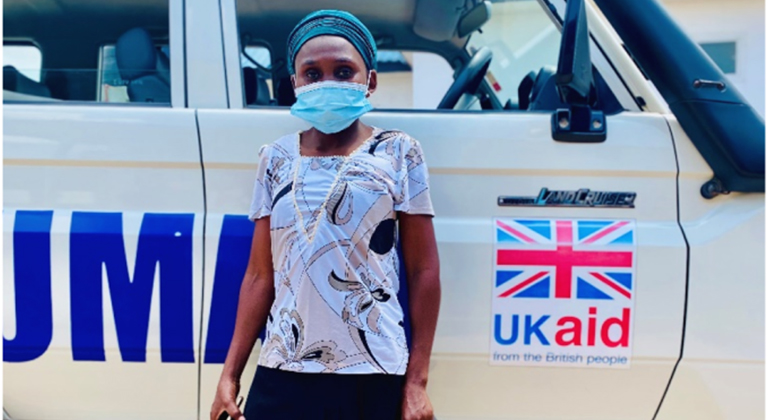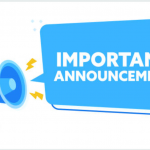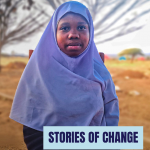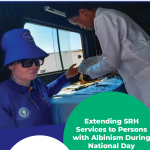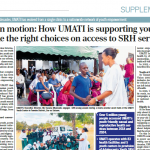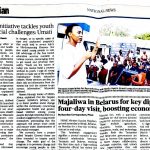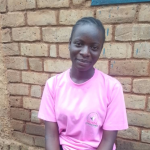If Empowered CHWs, can make a difference. A testimony from Sauda
It is around 10:00 AM when WISH Communication and Country Managers met smiling Sauda (pictured) for a talk. Sauda is a CHW working for WISH project in Mabibo Health Center in Ubungo District in Dar Es Salaam. The center serves around 100 OPD clients per day and has reached 25171 clients for SRHR services since the WISH2ACTION launch.
Sauda, please tell us about yourself
My name is Sauda Ayubu Mohammed, 38 years old. My education level goes up to ordinary secondary school (form four). Am working as a community health worker under the WISH2Action programme in Dar es Salaam mainly offering sexual reproductive health information, education, and referrals at the community level.
What motivated you into this job?
After completing my secondary education, I just had a passion for community work. I went back home and introduced myself to the Ward office informing them about my skills and capacity so that whenever the need arises for people with such capabilities, they could reach out to me. After a while, I was informed that there was a need for Community Health Volunteers, we went for an interview and I was lucky to be among the selected. In that year 2007, we went to capacity building seminar which enabled me to start providing services to the community.
I have always loved community works and I have drawn my fair share of passion for this from the villages where we had done door-to-door visits to offer health information. My passion for community health is also rooted in looking at nursing as a noble career where its people are calm, caring, welcoming, etc. which made me see that a health facility is everything to the community.
How many clients have you reached since WISH2ACTION inception and what are your strategies in reaching them?
From the project’s inception to date, I have been able to reach about 2376 people in different groups including young people. I follow clients where they are and I target areas where I will reap more, for example; I have been reaching young people through their peer groups sports such as jogging, football matches, and also those of political affiliation I reach them through their organized meetings and provide them with sexual reproductive health education, information and services. The most preferred services by these groups are condoms and SRH information to protect themselves from teenage pregnancies and avoid diseases that may result from unprotected sex.
How do you reach people living with disabilities?
At first, we were offering people with disabilities similar education and information just like we were doing with other target groups. However, after the refresher training provided to us by UMATI, we discovered that these people also had different priorities from other groups and that they needed special attention. That is where I pulled up my socks and explored means to reach them, one way was through our streets where we have PLWD joined in entrepreneurship groups and connected them with family planning services. “As we speak, work progress is rewarding because they are aware and also benefiting from family services.” Sauda added.
How are you able to provide SRHR service in times of the COVID-19 pandemic?
One of my major responsibilities as a community health worker is to educate the community about the changes that we are facing at the moment. Therefore, the case of COVID -19 also falls under my responsibility. In this regard “I provide family planning education coupled with information and education on how people can protect themselves from COVID -19 pandemic by telling them to wash their hands with soaps regularly, social distancing and not to use medicines without a service provider’s prescription when one feels ill instead go to a health facility and see a service provider.”
Experience sharing and mentorship to others can be an effective way to impart the knowledge you have gained. How have you shared your knowledge with others? Photo: Sauda (right) and one of her mentees
Sauda says “From my experience and skills that I have gained from my work, I take time to impart knowledge to the wanna be community health workers in Mabibo and other surrounding areas with the need. In the WISH2ACTION program, I have managed to cascade my SRH knowledge to more than 14 new community health workers in Mabibo ward who started their works through me”. I have also built capacity to more than 6 community health workers from Makuburi, Mbezi, Kimara, and Makurumla wards about my work and how to write reports. These community health workers are doing great and they have been to proper training to sharpen their skills and knowledge.
What are the challenges you face and what can the WISH2Action programme do?
We have few challenges that if improved could help us in the work we do, these may include working tools such as reporting forms whereby you only have one copy and are required to make a copy whenever you need an extra one, also the environment that we work on is not as friendly in certain times of the year especially during rainy seasons and if you don’t have rainy gears, it becomes challenging. Another challenge is our identity, as much as the community recognizes us, some of them challenge us with our identity but if we have identifications from the authorities, these challenges will be less tough on us. The last challenge is on allowances, if the program considers an increment to our allowances, we would be better off.
What do you have to say about the WISH2Action programme?
“WISH2ACTION is a community-centric program because it has increased the awareness to sexual reproductive health in the area of family planning services and also prioritizing special groups of people like PLWD because at first, we were just passing by the streets advocating for sexual reproductive health and we were sidelining this group as they were not feeling connected to the program and felt like they were not part of the community”.
WISH2ACTION in Tanzania is implemented by four consortium partners: UMATI, Marie stopes Tanzania, Options, and DMI
About UMATI
Established in 1959, Chama cha Uzazi na Malezi Bora Tanzania (UMATI) is not for profit, non-political national NGO providing Sexual and Reproductive Health (SRH) information, education and services in Tanzania. UMATI is a full Member Association (MA) of the International Planned Parenthood Federation (IPPF). UMATI implements WISH2ACTION in seven regions covering 218 health facilities. A total of 218 CHWs provides community based SRH education and services.
UMATI key achievement as of June 2021
1,753,932 CYP delivered
16.9% of the clients are Youths
229,873 additional users
